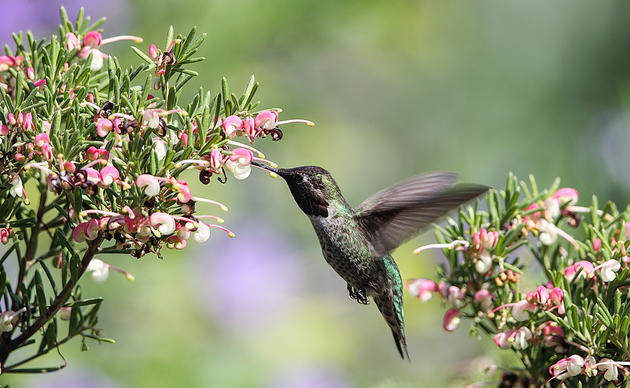In the spring, Keiller Kyle drives the back roads of the Central Valley with his cell phone, range maps, and a pair of binoculars on the passenger seat. Bumping over potholes and cracks, sometimes he’ll round a corner and find a small wheat field exploding with Tricolored Blackbirds.
Kyle then has the awkward task of finding the nearest farmhouse, walking up the steps, and knocking on the door. On porches throughout the valley, he has told the story of how Tricolored Blackbirds once filled the sky, but are now increasingly rare because of lost habitat. Now the Tricolored Blackbirds tend to nest in just a few huge colonies, often in grain fields, which puts them at grave risk if the farmer harvests the field before the young can fly away.
“I used to be really nervous about these meetings,” says Kyle. “But I've found that most of the farmers I meet really want to help out. In many ways, they’re pleasantly surprised to hear that their farm is special.”
Kyle sometimes offers to pay the farmer to delay harvesting until after the young birds have fledged. So far this spring, Audubon California has struck four such deals with farmers and saved more than 70,000 birds. Unfortunately, one colony that Kyle discovered on a weekday afternoon was harvested the following morning before he could meet with the farmer.
You can help us protect Tricolored Blackbirds -- learn how easy it is here.
Kyle said he expects to be searching for new colonies into July. And while this is going on, Audubon California is working to create new habitat for Tricolored Blackbirds away from farms where the colonies will be safe.
There’s new urgency to this work. Last year, Audubon California and more than 100 volunteers completed a statewide survey of Tricolored Blackbirds. The latest estimate was 259,000 birds, a thirty-five percent decrease from the 2008 census. Funding for the survey was provided by the U.S. Fish and Wildlife Service.
Paying farmers to delay their harvest is an imperfect solution, and that’s why Audubon California is working with partners at both government agencies and nonprofits to create safe habitat away from the farms.
Until then, Kyle will be standing on more porches telling farmers the story of the Tricolored Blackbird.
By Garrison Frost
Monthly Giving
Our monthly giving program offers the peace of mind that you’re doing your part every day.




